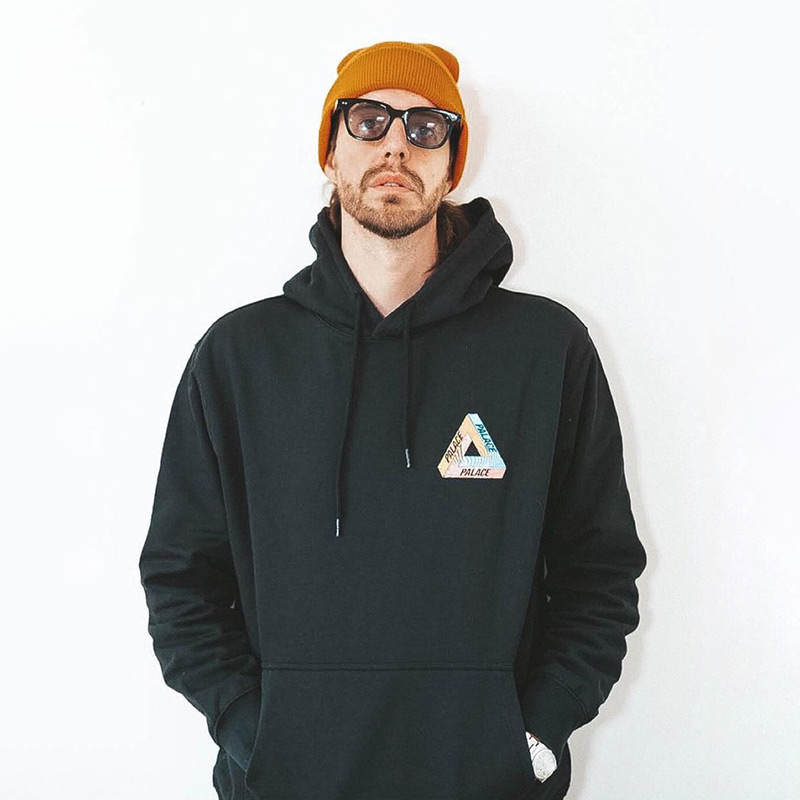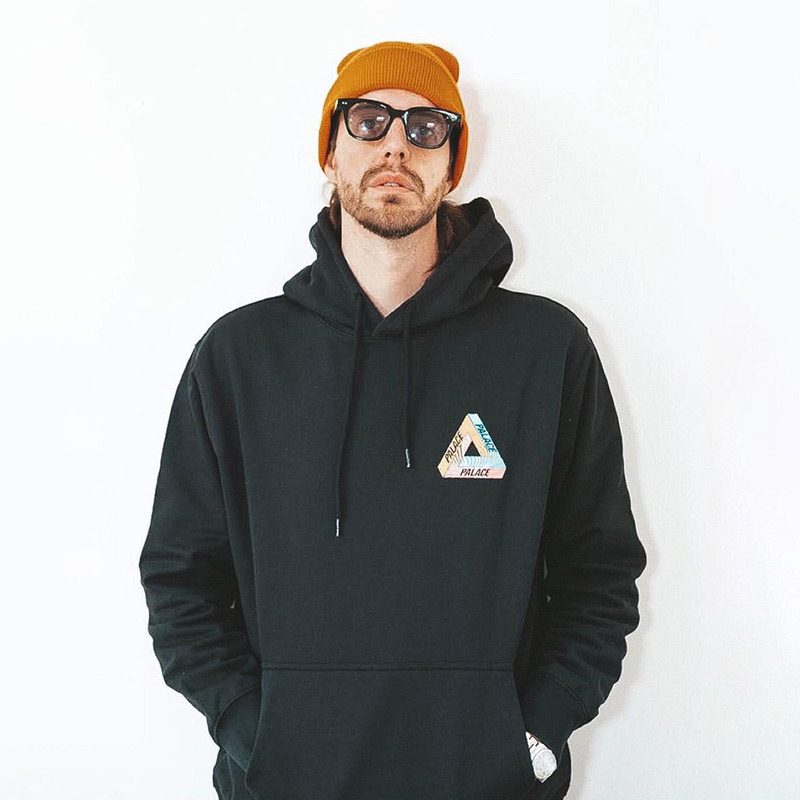
Photo courtesy of Harry Fraud’s Instagram
Please support truly independent rap journalism by subscribing to Passion of the Weiss on Patreon.
Oumar Saleh meditates to Big Body Bes interludes.
To my knowledge, Harry Fraud remains the only rap producer to get their props from Simon Cowell before their career took off. Spending his formative years composing for the International Emmys, Fraud’s walk-on music for Cowell impressed the part-time pop svengali enough for him to pause his own award speech back in 2010 and praise it as a “hit record”. Drenched in snares and sampling French violinist Jean-Luc Ponty’s cascading strings, Fraud’s beat would form the foundation of the sonic trademarks that have garnered similar acclaim throughout a prolific career.
Born and raised in New York City, Harry Fraud’s production style can best be described as wavy love letters to the Big Apple’s boom bap origins. While Fraud’s oeuvre is firmly rooted in the quintessential East Coast street sound, his beats are infused with the sense of whimsical idealism you’d experience while lounging on a hammock or cruising by a cliffside late at night. Genres such as ‘70s soul and psychedelic rock are slow-cooked into his melting pot of melodic opulence, manifesting into his own brand of sun-kissed yacht rap that would saunter in wearing silk robes and stunna shades while holding a half-lit Cohiba.
French Montana was the first rapper to spot those qualities, doubtless noting the influence his mentor Max B had on his fellow Bronx native. The kindred spirits, bound by their black belt degrees under the tutelage of the waviest sensei around, first broke through with the sepia-tinted “New York Minute” with Jadakiss and a sped-up Don Henley on the hook before popping off with 2011’s “Shot Caller”. Riding a relentless sax throughout, French’s toast to Golden Era hip hop ruled Tri-State Area radio to such an extent that Rap Caviar regulars Diddy and Rick Ross both jumped on the remix thereafter.
From there, Fraud blew up and became one of the last decade’s most sought-after beatsmiths. Artists ranging from DatPiff spitters such as Chinx Drugz to Billboard chart-toppers like The Weeknd flocked to his lush production like red-eyed moths to a blunt’s burning cherry. Action Bronson’s witty absurdism and Meyhem Lauren’s mafioso musings are handled with the same dexterity given to Curren$y and Smoke DZA to flesh out their hazy narratives, and weary street poets Prodigy and Styles P found another canvas to spray-paint their gritty verbal graffiti on.
Fraud’s old-fashioned approach behind the boards, preferring to work in person instead of volleying beats via email, is typical of the producer who prefers to shun the limelight. He is deliberately selective about his collaborations, opting to help rejuvenate Jim Jones and Curren$y over the past year instead of partnering up with the Drakes and DaBabys of today. His eighth project since the pandemic, The Plugs I Met 2 with Benny the Butcher, is on the horizon and early signs point to it becoming a worthy sequel to the Griselda rapper’s 2019 masterpiece.
With the credits to back up his alluringly iconic producer tag, let’s dive into some choice cuts dug up from the crates of La Musica de Harry Fraud…
French Montana & Chinx Drugz – “Tunnel Vision”
Max B’s incarceration cast a large shadow over the wave he pioneered, with this lead single from the eponymous Coke Boys mixtape released during its peak. Fraud’s love of ‘80s neon ballads is on display, looping Eddie Money and Ronnie Spector’s ‘Take Me Home Tonight’ over tales of grinding. Sadly, one of Bigaveli’s main disciples wouldn’t live to see the impact the movement has had on today’s culture, with Chinx tragically gunned down in Queens six years ago.
Curren$y – “Biscayne Bay”
2012’s Cigarette Boats marked the genesis of one of the more enduring rapper/producer tandems around, with Spitta Andretti finally linking up with his musical soulmate on a project XXL recognized as the best EP released that year. The ex-Young Money OG broke out as an indie mainstay after leaving Lil Wayne and company, with his buttery flow and laid-back braggadocio perfectly complimenting Fraud’s fluorescent beats for years to come.
Smoke DZA & Action Bronson – “Turnbuckle Music”
D-Von DZA and Bubba Bronsoliño channel the Dudley Boyz on this one, attacking Fraud’s stuttering bass and snares with the vigour of freshly tagged wrestlers clearing the ring of their opponents. This Rugby Thompson standout is symbolic of their own assaults on the rap game after years of putting in work in the NY mixtape scene, and Fraud’s role in their respective ascents couldn’t have been more pivotal.
The Kid Daytona & Jadakiss – “Low”
One of Fraud’s gifts is his firm grasp on instrumentals, expertly blending drum patterns and sax lines to conduct the distinctive sound that has earned him plenty of plaudits and cosigns. This hidden gem from the Kid Daytona, years before he’d be one of the first to sign for Fraud’s label Surf School Recordings (a dual homage to Fraud’s love of surfing and Max B), is emblematic of the producer’s proclivity for incorporating varying degrees of jazz into his massive catalogue.
Danny Brown – “#HottestMC”
Out for blood after MTV revealed who their ‘Hottest MCs’ were back in 2013, the Adderall Admiral straps up for combat in a scathing dismissal of their listicle. The best joint off of Fraud’s debut mixtape Adrift sees the beatsmith transform the psychedelia of Greek prog rockers Aphrodite’s Child into a menacing opus mirroring Brown’s mood. He heeds the calls of Pac, Big, Pun and L to wreck shit up like seismic natural disasters after being ignored – again – despite the critical acclaim XXX enjoyed around the time.
Westside Gunn & CRIMEAPPLE – “Spanish Jesus”
Rarely mentioned among Fraud’s finest work, this Supreme Blientele rap noir is effortlessly guided by Latin guitar riffs that instantly hark back to Carlos Santana’s legendary strumming. Fraud creates a sinister background for Gunn and New Jersey’s CRIMEAPPLE to swap dope boy verses injected with ostentatious oddities such as the Flygod rigorously abiding by his Yves St diet. This song also represents Fraud’s first collaboration with a Griselda member, and left fans like myself clamoring for more upon its release.
Jay Worthy – “Hold Something”
Eddie Drennon crooning ‘Do What You Gotta Do’ commandeers the kahuna that Worthy is surfing on in the penultimate track from last year’s Eat When You’re Hungry, Sleep When You’re Tired. Fraud anchors the joint with a mood-lifting bassline backed by East Coast drums that the rapping half of LNDN DRGS rhymes over with aplomb. The album’s carefree vibe was an antidote against the uncertainty the world faced during its release, and heralded the beginning of Fraud’s productive run throughout this annus horribilis.
Meyhem Lauren – “Yucca”
The street-smart Meyhem is an underrated throwback to an era where mafioso rap called the shots. This haute couture crime epic, chronicling a day in the life of Laurenovich, stokes visions of bizarre back alley opium dens in the Far East from the get-go, and shows off Fraud’s commitment to crafting his unique vision of what Generation Now boom bap should sound like.
Larry June & Curren$y – “Let’s Go to New Orleans”
Fraud’s return to prominence over the past year reminds me of the second half of Shawn Michaels’ in-ring run – both experiencing blistering starts to their careers, but it would be the variety of their later works that will come to define them. In Fraud’s case, he stepped up heavy once quarantine season began, relying less on the fog-shrouded sampling that dominated his early beats and focusing more on jaunty jazz reminiscent of BBQs and block parties. Those fine shifts play right into Larry June’s strengths, with the Bay Area bard joining a growing list of rappers who’ve thrived under the soul-dripped sound that serves as one of Fraud’s sonic signatures.
Jim Jones – “Barry White”
It’s rather unfair to reduce Jim Jones to a de facto third wheel in the Dipset trifecta, for the Capo’s recent improvement on the mic shouldn’t be slept on. One of the darker joints from this year’s The Fraud Department is still somewhat celestial thanks to the producer’s deft touches despite the ghetto ruminations of a rap vet who wishes to turn his hood into a paradise, and is among the more pensive joints from a record yet to receive its due praise.

